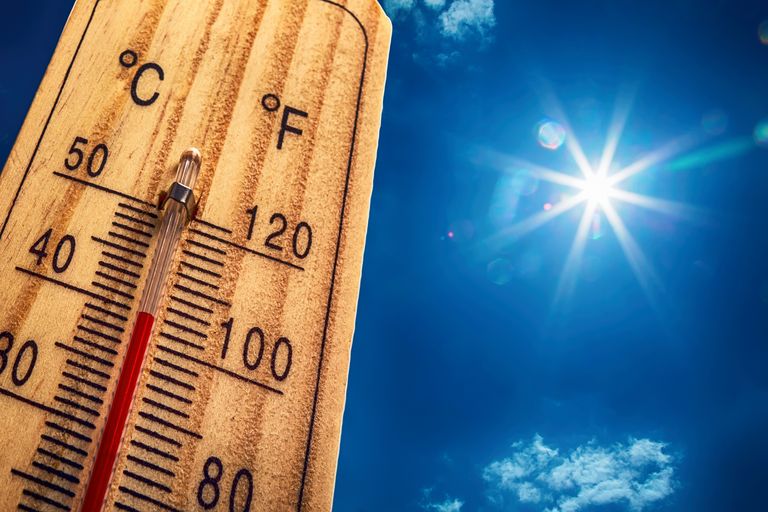Rising Temperatures Could Increase Suicide Rates in North America
A new Stanford study shows a strong link between hotter days and rising suicide rates.
By Laura Yan
Thermometer Sun 40 Degres. Hot summer day. High Summer temperatures MARIANVEJCIK
Projected temperature rises over the next 30 years could lead to an additional 21,000 suicides in the U.S. and Mexico, according to a new study published in the journal Nature Climate Change. Suicide rates have generally been higher in warmer months for centuries, but it’s been difficult for researchers to draw direct comparisons to temperature, given the many other factors that vary seasonally (unemployment rates, daylight hours).
To find a more direct link, researchers from Stanford University compared historical temperature and suicide data in the U.S. and Mexico over several decades, and looked to social media, analyzing the language in over half a billion Twitter posts, looking for tweet containing words like “lonely,” “trapped” or “suicidal” during hot spells. Their research revealed a strong correlation between hotter weather, higher suicide rates and more use of depressive language on social media.
“Surprisingly, these effects differ very little based on how rich populations are or if they are used to warm weather,” said Marshall Burke, an assistant professor of Earth system science in the School of Earth, Energy & Environmental Sciences at Stanford. Even if you’re used to hot weather and can escape to the safety of A/C, suicide rates don’t start decreasing. For instance, researchers found that the effects of hot weather in Texas were some of the highest in the country.
Researchers used the data from global climate model projects to calculate how temperature increases could affect suicide rates by 2050, predicting a 1.4 percent suicide increase in the U.S. and a 2.3 percent increase in Mexico, which are roughly as influential as other suicide predictors like economic recessions (increasing rates) or suicide prevention programs and gun restriction laws (decreasing rates).
“We’ve been studying the effects of warming on conflict and violence for years, finding that people fight more when it’s hot. Now we see that in addition to hurting others, some individuals hurt themselves. It appears that heat profoundly affects the human mind and how we decide to inflict harm,” said Solomon Hsiang, study co-author and associate professor at the University of California, Berkeley.
(via Stanford News)
No comments:
Post a Comment